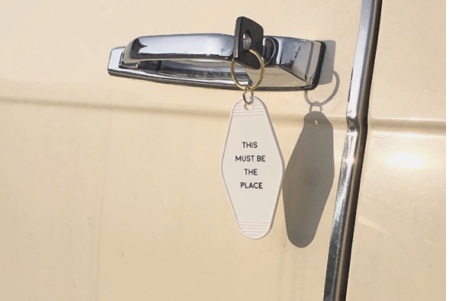Sarah Heck is the Head of Entrepreneurship for one of the fastest-growing companies in the world, Stripe. Sarah’s career has had a unique path, landing her in Washington DC working for a strategic consulting firm, the State Department, and even the White House!
We explore meaty topics like the art of giving and receiving feedback, choosing whether or not to go to grad school, and knowing when it’s the right time to pivot into a new opportunity. You’re going to love the career gems that Sarah shares in this conversation.
KEY TAKEAWAYS
When the steep learning curve tapers off at your current job, it’s time to find a new opportunity.
Early on in her career, Sarah had a mentor and boss who said, “I’m going to kick you out of here in two years because you’re going to have learned everything you can, and you should go and do something else.” These words really stuck with Sarah.
There’s an interesting line between staying at a company long enough to build longevity and a sense of accomplishment, vs. knowing when it’s the right time to move on.
When the learning curve begins to taper off and everything starts to feel a little stale and repetitive, it could be time to explore a new project or opportunity.
To get to this level of transparency with her boss, Sarah worked hard to invest in the company and in the boss/employee relationship so that they had open communication and feedback. In your current role, are you actively sharing your passions and interests with your boss? Are you letting them know when you aren’t feeling challenged?
Feedback is a learned habit.
Sarah loves the idea of making feedback tangible and routine, as a part of your regular cadence with your boss.
When you complete an assignment, check in with your boss from time to time and ask them what you did well, and what they would have liked to see done differently. This can be asked in a very calm, non-confrontational way, and it will only help you be even better at your role. Over time, this also stretches and develops your feedback muscle and helps the skill of giving and receiving feedback become learned on both sides.
Sarah says now, even being at Stripe over 4 years, she still asks questions. The more comfortable you are with asking questions, the more faith and confidence you’ll have in yourself that you’ll produce brilliant outcomes.
Hearing feedback from your boss frequently and often can also help you quickly course correct and get on track, vs. finding out months later at a performance review where you may have been lacking at an annual review.
The alumni network you’ll gain from an MBA program is worth the investment alone.
Have you thought about whether or not you want to enroll in a graduate program? It’s something I hear my clients talk about all the time.
Sarah has a masters in International Affairs and walks us through her multi-pronged approach to how she made the decision to go back to school.
First, consider your finances. Are you going to pay for it? Will you have to take out a loan, or will you have financial support from your family? Is the job you’ll get after graduation going to give you the financial freedom and stability you’ll need to pay off the degree?
Second, the “Rolodex” is an unexpectedly amazing perk. Your classmates will become part of your alumni network and community, forging friendships, mentors, and trusted confidantes to lean on. It’s important to pick a school whose community speaks to you. Sarah considered the location of the school, because she knew she wanted to be in a specific city.
Grad school is also a perfect moment to pivot in your career. For Sarah, it was the chance of a lifetime to move into public service. Nabbing a graduate fellowship at the State Department paved the way for the career opportunities that followed on her journey.
The simple steps to breaking into roles in Washington, and Sarah’s #1 piece of career advice.
If you’re curious about working in Washington, especially with the new administration in place, Sarah recommends volunteering on campaigns and getting to know as many interesting people as possible.
There are also numerous think tanks, organizations, and NGOs that are working on specific issues. If you’re passionate about Human Rights, maybe you look into opportunities at Human Rights Watch. Or if your focus is on democracy, there’s the Open Society Foundations.
Often, those who work in Washington don’t have a linear career path, so being flexible and comfortable with change is key.
Sarah leaves us with this advice: work for smart, capable, and nice people, no matter where you land, whether it’s in Washington or somewhere else. Today at Stripe, she works across many teams and has created a fulfilling experience supporting the entrepreneurs and the small businesses that they work with. So pick your bosses carefully, and pick your organizations with the same level of care!
NOTABLE QUOTE
“My journey has definitely not been a straight line. But looking back on it, I can see aspects of every small and big step in my career making sense.”
Listen to the episode now on The Career Memos Podcast available on Apple Podcasts, Spotify, Google Podcasts, and Stitcher.


